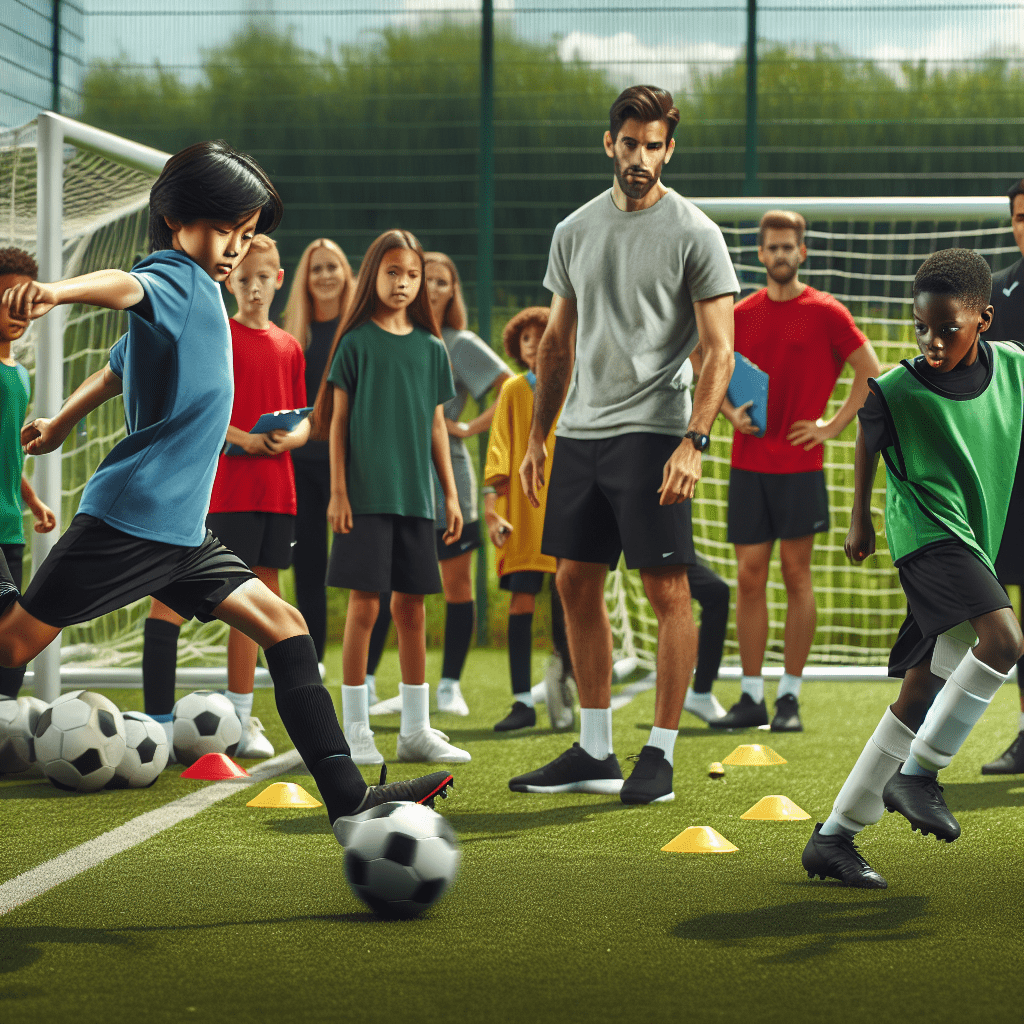[ad_1]
Beyond the Pitch: The Holistic Approach to Developing Young Soccer Talent in Academies
The evolution of soccer academies demands a modern approach towards developing young athletes. Gone are the days when technical skills alone could propel a young talent to the pinnacle of world soccer. Today, the holistic development of a player, encapsulating technical, mental, and physical facets, stands paramount in the competitive realm of soccer academies. This comprehensive guide delves deeper into the holistic approach—ensuring young aspirants not only excel on the pitch but also thrive off it.
Technical Mastery: The Foundation
Technical skills remain the cornerstone of soccer proficiency. Academies emphasize mastering the ball, which includes dribbling, passing, and shooting with both precision and efficiency. High-caliber coaching, utilizing state-of-the-art technology like video analysis and biometric feedback, tailors a player’s technical development to their unique strengths and weaknesses.
Physical Conditioning: Building Athletic Powerhouses
Physical fitness is another crucial component. Young players are guided through rigorous training regimens designed to enhance speed, strength, and endurance. Nutritionists and fitness coaches work in tandem to prepare these young athletes for the physical demands of the game, ensuring their bodies can withstand the rigors of competitive play while minimizing injury risks.
Mental Resilience: The Psychological Edge
The mental aspect of soccer is often what separates the good from the great. Academies now pay significant attention to developing a player’s psychological resilience. Activities aimed at boosting confidence, stress management, and focus are integral, with sports psychologists playing a key role in nurturing a mentally tough mindset.
Life Skills: Preparing for Life Beyond Soccer
Understanding the importance of life beyond soccer, academies also focus on imparting valuable life skills. Education programs, community engagement, and personal development workshops ensure players grow as individuals, not just athletes. This rounded approach prepares them for various career paths, fostering a sense of integrity, teamwork, and leadership.
Community and Social Responsibility
Bridging the gap between individual achievement and community contribution, academies encourage players to engage in social responsibility initiatives. Whether through charity matches, community coaching, or environmental projects, young talents learn the importance of giving back, instilling a deep sense of social responsibility.
Global Exposure: The World as a Classroom
To thrive in the global soccer landscape, academies offer international exposure through tournaments, training camps, and cultural exchange programs. This not only hones their skills against various playing styles but also enriches their understanding of different cultures, enhancing adaptability and broadening perspectives.
Key Takeaways
- Technical Mastery: Foundational to soccer excellence, demanding consistent and innovative training approaches.
- Physical Conditioning: Essential for meeting the game’s demands, requiring tailored fitness and nutrition plans.
- Mental Resilience: Critical for overcoming challenges, highlighting the need for psychological training.
- Life Skills: Equally important, ensuring players succeed off the pitch by developing their character and social skills.
- Community Engagement: Encourages a sense of responsibility and contribution beyond the soccer field.
- Global Exposure: Provides a competitive edge and fosters a comprehensive world view.
Frequently Asked Questions (FAQs)
Why is a holistic approach important in youth soccer development?
A holistic approach is critical because it develops the player comprehensively, ensuring they are not only skilled on the field but also well-rounded individuals capable of handling life’s challenges.
How do academies integrate mental training into their programs?
Academies integrate mental training through workshops, one-on-one sessions with sports psychologists, and activities designed to improve focus, resilience, and mental toughness.
Can physical conditioning affect a young player’s technical skills?
Yes, optimal physical condition enhances a player’s ability to perform technical skills efficiently, especially during the latter stages of a game when fatigue sets in.
How do soccer academies contribute to community and social responsibility?
Soccer academies contribute by engaging players in community service projects, environmental initiatives, and charity events, thereby fostering a sense of social responsibility.
What benefits do international exposure programs offer?
International exposure programs offer young players the chance to experience different soccer styles, cultures, and levels of competition, enriching their development and broadening their perspectives.
[ad_2]






